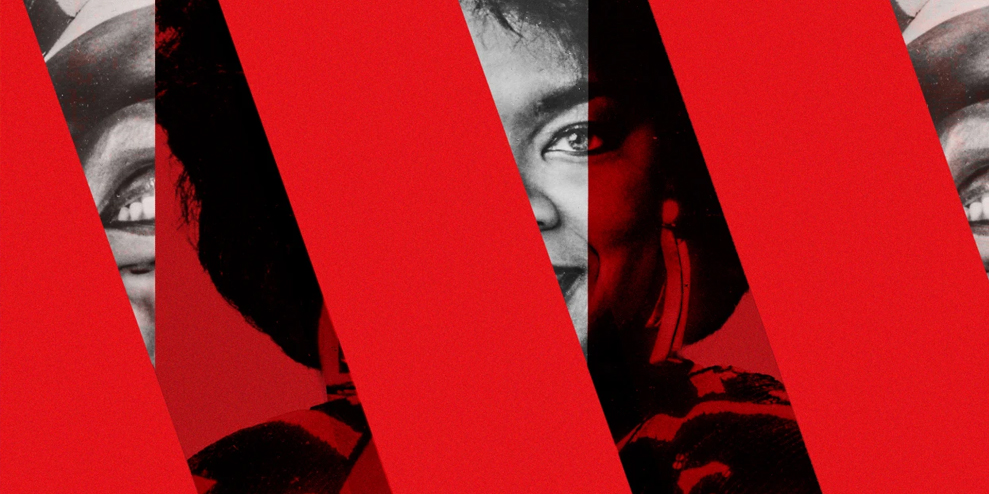Thanks to the Bridgerton musical and an unauthorized Oprah podcast, the media giants have recently found themselves in the delicate business of suing fans.
Branded is a weekly column devoted to the intersection of marketing, business, design, and culture.
In her afternoon talk show’s heyday, Oprah Winfrey specialized in surprising fans with unexpected giveaways. Last month, “Oprah obsessives” Kellie Carter Jackson and Leah Wright Rigueur got a different sort of surprise: a trademark-infringement lawsuit from Winfrey’s production company charging that the pair’s Oprahdemics podcast is using both the Oprah name and “O” logo without permission.
Carter Jackson and Rigueur are both historians, academics, and authors; they are also, according to a statement from the head of their podcast’s production company, “sincere, longtime fans of Oprah Winfrey.” The premise of Oprahdemics, launched this past March, is that Winfrey and her cultural impact over time are worthy subjects for the hosts and their similarly highbrow guests. The podcast is promoted with a light touch (a “study of the Queen of Talk”), and despite being openly “unauthorized,” seems like yet another boost to Oprah’s historical/societal profile. So the upshot is that it sounds an awful lot like Harpo, Inc. (Oprah’s company) is picking a fight with its own supporters. And really, should a brand ever sue its fans?
It’s actually a trickier question than it sounds. For context, consider another recent legal squabble involving Netflix and the makers of an unauthorized Bridgerton spinoff.
Bridgerton, of course, is the multiracial, sex-soaked costume-drama escapism sensation from Shonda Rhimes that debuted in December 2020. Among its immediate fans were Abigail Barlow and Emily Bear, twentysomething musical-theater-loving TikTok users who promptly set out to offer their own answer to the question: “Okay, what if Bridgerton was a musical?”
The duo made up their own songs and invited their social media audience to participate and contribute, but borrowed heavily from the series—quoting dialog verbatim, following plot lines, etc.—and, obviously, using its name. An album of their songs, The Unofficial Bridgerton Musical, won a Grammy. Netflix tolerated and even occasionally praised all this, treating it as a sort of feel-good story and fan tribute that presumably helped the Bridgerton brand more broadly.
Things soured when Barlow and Bear decided to mount a live production at the Kennedy Center; Netflix (which backs an official live production called The Queen’s Ball: A Bridgerton Experience) said the musical’s creators would need to pay for a license to stage their show. According to the company, it offered such a license, and Barlow and Bear allegedly turned it down—hence the lawsuit.
But, in a surprising turn, many Bridgerton fans have taken Netflix’s side. (Or, perhaps they were rallying for Rhimes or Julia Quinn, the author of the novels behind the series. “I was flattered and delighted when they began,” Quinn stated. “There is a difference, however, between composing on TikTok and recording and performing for commercial gain.”) According to a Slate recap of the resulting social media drama, the online mob mocked the duo and sympathized with Netflix wanting to protect its intellectual property. In short, many seemed to believe that Netflix was supportive for as long as it could be—but ultimately had no choice but to sue the world’s most famous Bridgerton stans.
Which brings us back to Oprah. Notably, Harpo is seeking no monetary damages and is not asking for the hosts and their production company to stop making their show. Instead, it’s asserting that the show’s name and branding implies that it’s Oprah-approved (and, in some sense, benefits from that impression).
In other words, Harpo is trying to thread the needle of making its case that Oprahdemics has crossed a specific line—but doing so without looking like a bully. After all, a brand that fails to defend its trademarks is taking an enormous risk: a track record of letting others borrow or reuse your intellectual property without consequence can set a precedent in the law’s eyes, making it harder to protect that property from further misuse.
And as much as suing fans can be a bad look in the court of public opinion, the consequences aren’t always so dire. When J.K. Rowling successfully sued the creator of an unauthorized guide to her Harry Potter series, even its author said he would remain a superfan just the same.
Oprahdemics producer Roulette Productions has said the podcast “comes from a place of both deep admiration and critical thinking,” and that it “has been engaged with the team at Harpo for some time.” The various parties have fallen silent since the suit was made public, but perhaps there can be a deal—or even an opportunity.
There, so far, has been just one Oprahdemics season, about a dozen episodes released between March and June of this year, and a couple of live events. Now, in a peculiar twist on the so-called Oprah Effect (that is: the idea that when Winfrey highlighted a brand or product or book on her show, it promptly took off), the podcast has received more attention than ever. This could be a great time to treat this whole episode as a branding event and announce a new season—even with a tweaked name.
Harpo, of course, has a different agenda: Sending a message about what it considers the boundaries around the Oprah brand. And it’s letting even well-intentioned stans know the potential consequences of crossing those boundaries: You get a lawsuit, and you get a lawsuit, and you get a lawsuit!”
—
This article first appeared in www.fastcompany.com
Seeking to build and grow your brand using the force of consumer insight, strategic foresight, creative disruption and technology prowess? Talk to us at +971 50 6254340 or engage@groupisd.com or visit www.groupisd.com/story


